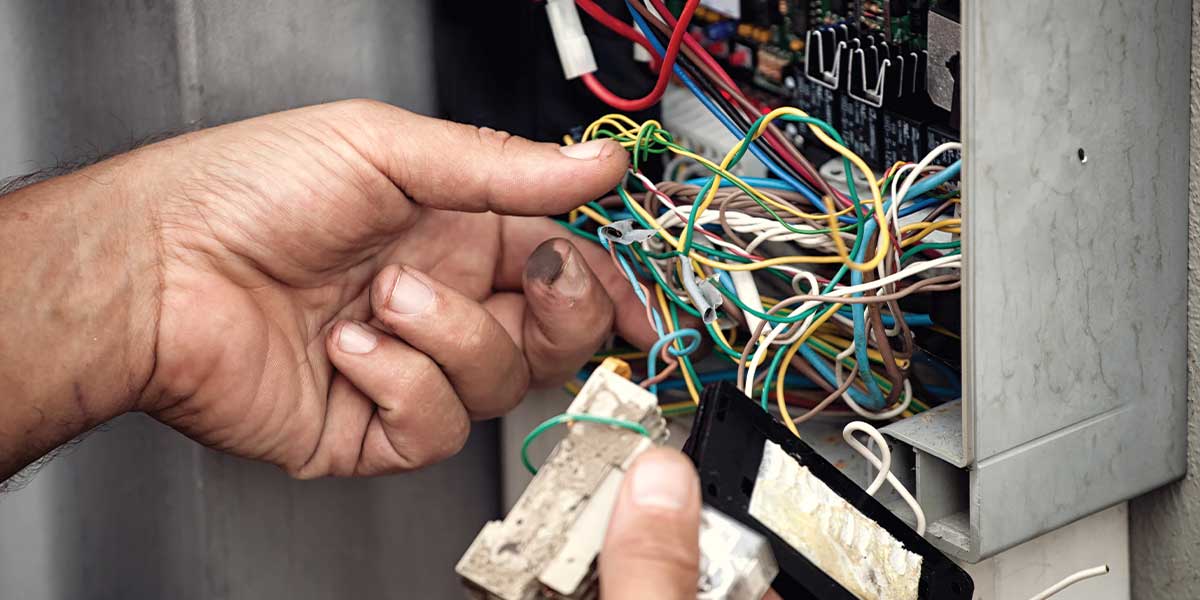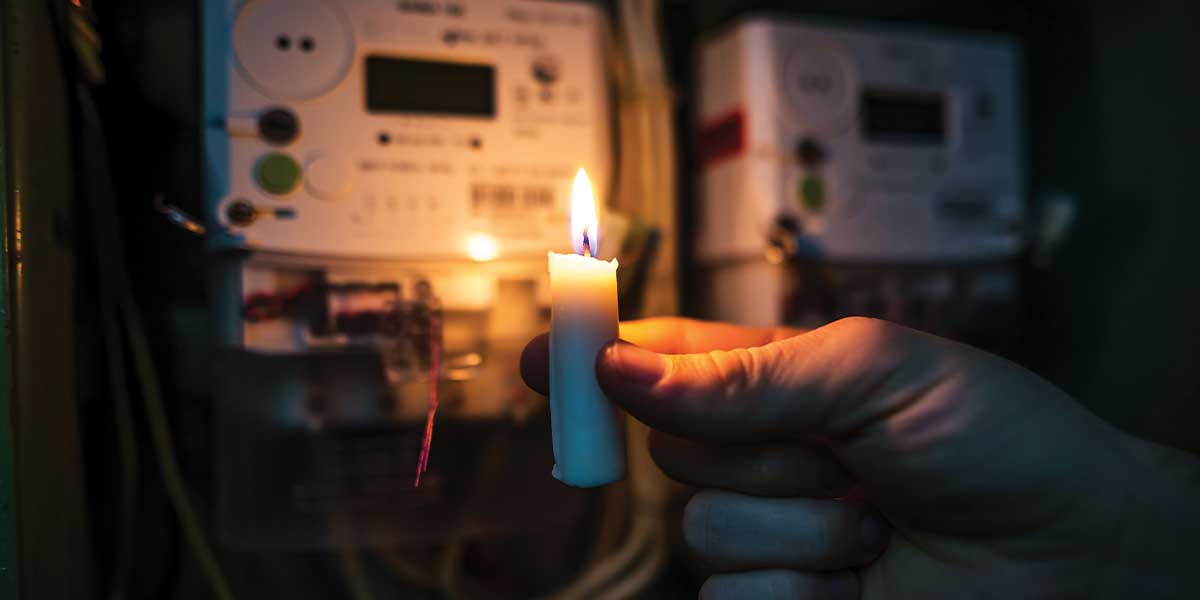Every home, regardless of its size, age, or layout, is vulnerable to home electrical problems. From flickering lights to overheating outlets, small issues can quickly escalate into serious hazards if ignored. Electrical problems don’t just cause inconvenience, they can compromise your safety and damage your property.
At Expert Electric, we specialize in diagnosing and resolving residential electrical issues of all kinds. With decades of experience serving homeowners across BC, our licensed electricians ensure that your electrical system is safe, efficient, and fully up to code.
In this guide, we’ll walk you through five of the most common home electrical problems, explain what causes them, and highlight when it’s time to call in a professional.
Why Home Electrical Problems Should Never Be Ignored
Electrical issues are not like squeaky doors or dripping faucets, they don’t go away on their own. Ignoring warning signs can put you at risk of:
-
Electrical fires caused by overheating outlets or faulty wiring
-
Electrocution hazards from worn-out outlets or exposed wires
-
Damaged appliances due to inconsistent power or surges
-
Higher energy bills from inefficient or faulty electrical systems
According to the Electrical Safety Foundation International (ESFI), electrical failures or malfunctions are a leading cause of residential fires in North America. That’s why it’s essential to recognize early signs of trouble and take action before they escalate.
5 Common Home Electrical Problems
1. Consistent Light Flickering
A flickering light here and there might seem harmless, but if your lights consistently flicker—even after replacing bulbs or fixtures, it often signals a deeper issue. Possible causes include:
-
Loose wiring connections
-
Overloaded circuits
-
Failing electrical components
Why It’s Dangerous: Loose wiring is one of the top causes of house fires. What seems like a small annoyance may actually indicate a serious electrical hazard.
Solution: Contact a licensed electrician to diagnose the root cause. At Expert Electric, we’ll inspect your wiring, test your connections, and ensure your lighting is both safe and reliable.
2. Breaker Tripping When Using Certain Devices
If your breaker trips frequently, especially when running high-energy appliances like microwaves, hairdryers, or space heaters, it’s usually a sign your electrical system is overloaded.
This is common in homes built between the 1960s and 1980s when electrical panels weren’t designed to handle today’s power-hungry devices.
Why It’s Dangerous: Constant breaker tripping means your system is working overtime to prevent overheating. If ignored, it could damage your panel and increase fire risks.
Solution: Upgrading your panel or adding a subpanel ensures power is distributed evenly and safely. Our electricians can install modern systems that meet today’s energy demands, giving you both convenience and peace of mind.
3. Hot Outlets When Devices Are Plugged In
Outlets should never feel warm or hot to the touch. If they do, it’s usually due to:
-
Faulty wiring
-
Overloaded circuits
-
Damaged or outdated outlets
Why It’s Dangerous: Heat indicates resistance in the circuit, which can lead to melted insulation, sparks, or even fire.
Solution: Immediately stop using that outlet and call a licensed electrician. Our team can replace the outlet, inspect the surrounding wiring, and ensure your system is safe before restoring use.

4. Overusing Power Bars and Extension Cords
Many homeowners rely on extension cords and power strips when outlets are scarce. While this may seem like a simple fix, it’s not a safe long-term solution.
Why It’s Dangerous: Overloading circuits with too many devices increases the risk of overheating and electrical fires. Extension cords are also a tripping hazard and not meant for permanent use.
Solution: The best approach is to add more outlets where you need them. Expert Electric can retrofit your home with additional outlets in living rooms, kitchens, offices, and bedrooms so you can power your devices safely.
5. Plugs Constantly Fall Out of Outlets
If your plugs no longer stay securely in the outlet, it means the contacts inside are worn out. A loose outlet may seem minor, but it’s actually one of the most overlooked home electrical problems.
Why It’s Dangerous: Loose connections can cause arcing, where electricity jumps between gaps. This produces heat and sparks, which are a major fire hazard.
Solution: Outlets showing wear should be replaced immediately. Our electricians can quickly swap them for modern, safe outlets that provide a tight, reliable grip for your devices.
Proactive Prevention: How to Avoid Electrical Hazards
Beyond fixing immediate problems, taking proactive steps can help prevent future hazards:
-
Schedule regular electrical inspections (every 3–5 years)
-
Install whole-home surge protection to protect against lightning or grid surges
-
Upgrade old wiring in homes built before the 1980s
-
Use GFCI outlets in kitchens, bathrooms, and outdoor areas for added protection
By making safety a priority, you’ll not only protect your property but also extend the life of your electrical system.
Looking to dive deeper into whole‑home surge protection best practices? Visit this detailed guide on how to protect a house from electrical surges for expert tips on installing systems, understanding surge types, and safeguarding your electronics.
FAQs About Home Electrical Problems
Q: How do I know if my home has wiring issues?
A: Warning signs include flickering lights, burning smells, frequently tripping breakers, and warm outlets. If you notice any of these, call an electrician immediately.
Q: Can I fix electrical problems myself?
A: Small issues like replacing a bulb are safe, but wiring, outlet replacement, or panel upgrades should always be handled by a licensed electrician. DIY electrical work is dangerous and may void your home insurance.
Q: How often should I schedule an electrical inspection?
A: Every 3–5 years, or sooner if you notice issues. Homes over 30 years old should be inspected more frequently.
Q: What’s the difference between a breaker trip and a blown fuse?
A: Breakers can be reset, while fuses must be replaced. Both serve the same purpose: protecting your home from electrical overload.
Q: Are extension cords safe for long-term use?
A: No. Extension cords are meant for temporary use only. Over-reliance increases fire risks and damages outlets.
Final Thought
Electrical problems are more than just a nuisance, they’re a warning sign that your home’s electrical system may be unsafe. By understanding the most common home electrical problems, you can spot issues early and take action before they escalate.
At Expert Electric, we believe safety should never be compromised. Whether you need outlet replacements, a panel upgrade, or a complete system inspection, our licensed electricians are here to help.
Protect your home and family today, because small electrical problems can turn into big hazards tomorrow.
Contact Expert Electric
Looking for a trusted electrician in BC? Contact Expert Electric today.
-
📞 Call Us: 604-681-8338
-
📧 Email Us: info@expertelectric.ca
We’re ready to help you fix electrical issues, upgrade your system, and keep your home safe.


